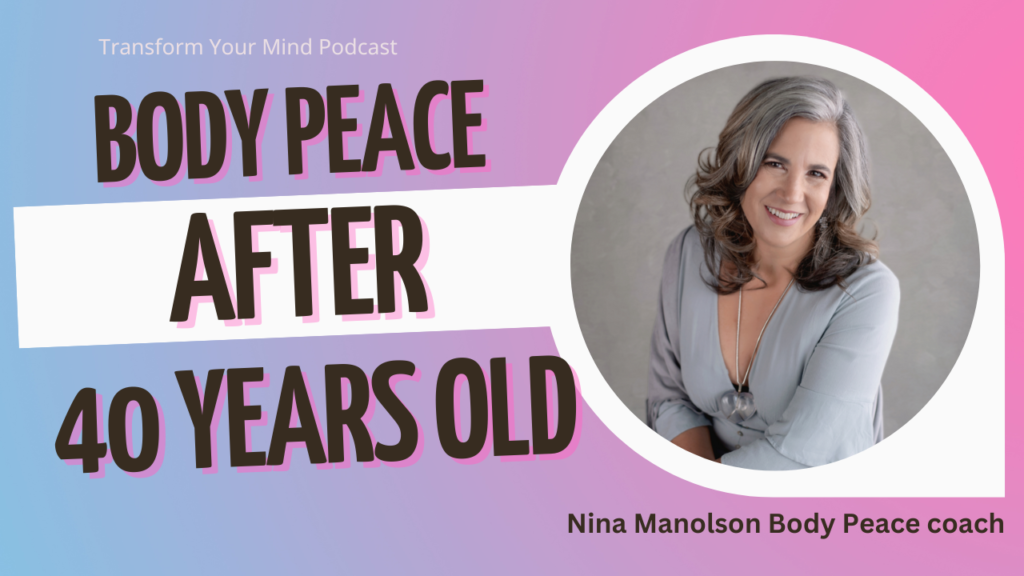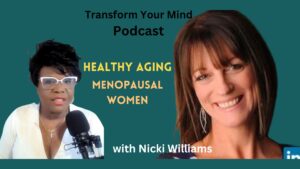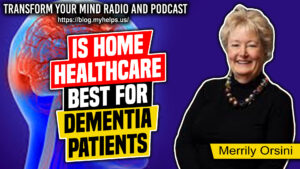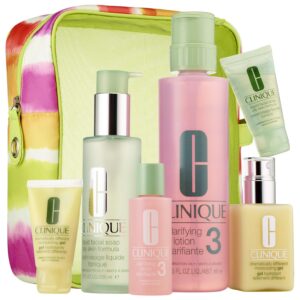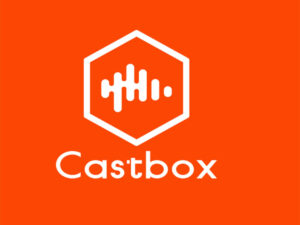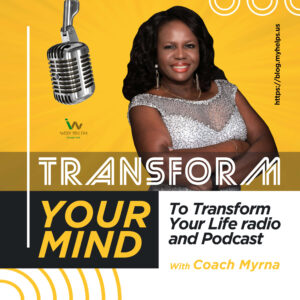Body peace, is especially difficult for women over 40 because our bodies are changing, and there are two times in a woman’s life that are most susceptible to disordered eating. One is coming into fertility, the other is leaving fertility. Perimenopause, menopause, post menopause, that’s a time where our bodies are again changing, hormones are shifting. And again, what comes up is women become very vulnerable to disordered eating because we’re like, oh, my gosh, my body’s changing.
Download the podcast here
Bio
Nina Manolson is a Body-Peace® coach. She helps people end the war with food and body and finally feel truly at home in their body—as it is. She is known for her deeply feminist, anti-diet, body-peace approach. She brings her 30 years’ experience as a therapist, Nationally Board-Certified Health & Wellness Coach, Body-Trust® Guide and Psychology of Eating Teacher to helping women create a respectful and trusting relationship with their food and body.
Nina’s Body-Peace work is all in service of helping people get off the diet roller-coaster, and into a compassionate and powerful way of eating & living which creates a positive long-lasting change in and with their bodies. Her courses, coaching and poetry positively change the conversation that women are having with their body. She also writes Body-Poems as a way to encourage a shift in the way we talk to, and about our body.
Myrna: How did you become a, body peace, coach?
Nina: My first diet was when I was nine years old. And then ensued decades of diets on and off, that diet roller coaster of like, oh yes, this is the new latest, greatest thing. This is it. This is how I’m gonna get that perfect body that you know all the magazines and all the blogs are talking about. And then of course that doesn’t happen, because 95% of people who go on diets gain their weight back, in two to five years. So that diet roller coaster was the story of my life to the point where I was like, this has got to change. This is frankly boring.
Sponsored Ad
When feeling stressed or anxious, it can be incredibly frustrating when someone tells you to meditate or do some deep breathing. Although these techniques can help at times, they often don’t actually solve the deeper issues behind our anxiety, stress, sadness, or anger. So, is there a better solution? Yes! Let me tell you about my new favorite mental health app NEUROCYCLE.
Neurocycle is the world’s first clinically-tested brain detox app. It’s a simple audio and video-guided program you do over 63 days to identify the root cause of whatever is causing you pain. I have been using this app for a few weeks now and I love the daily programs to detox my brain and rewire my neural networks. I especially love the exercises for the vagus nerve to promote emotional resilience, and stress relief.
The team behind NEUROCYCLE has spent over 30 plus years developing and testing this mind management system, to help patients who struggle with anxiety, depression, brain injuries, and so many other issues. OVER 1.5 MILLION people worldwide HAVE USED THE NEUROCYCLE program, including world-class athletes, speakers, authors, and celebrities. And, for a limited time, get 50% OFF your first month’s subscription with code TRANSFORM. Go to www.Neurocycle.app – and click on “access web version” to use promo code TRANSFORM so they know we sent you! This offer is only valid online.

Nina’s journey to becoming a body peace coach
And I have more important things to do in this life than to be obsessed about what I just ate or what the number on the scale is. And so, I started digging deep in my own life, which was a personal journey, but also became a professional journey. I became a therapist. I started as a body worker doing massages and helping women really feel comfortable in their own body. I started hearing women’s body stories and the trauma that we carry and all the shame that we carry about our bodies. Oh, my belly is too big. Oh, my underarms are still flapping when I wave. Oh, my butt is too you know, depending on the era too big too small to whatever, all that stuff that I was hearing.
And so then I got into also health coaching I was like, I’m gonna figure out how to eat right. Well, that’s not it either. Right? That’s not the whole answer. Of course, it matters, how we nourish ourselves, but that doesn’t actually impact how we feel about our body. So, I started to weave all of those together.
- How are we in relationship to our body?
- How are we in the relationship with our food? And that brought me to the work that I’ve been doing and really cultivating this work of, body peace, out of my own experience out of a lot of training.
Sponsored Ad
Journy: Life Goals & Self-Care app is a personal growth and self-care app that helps you create goals and track your progress. Journy provides a daily devotional with educational and inspirational content. Journy allows you to save goals and use Affirmation Meditations to affirm your personal progress.
Save personalized notes on categories of learning and improvement, easily watch educational content across a spectrum of categories with recommended reading. There are also routines in the app to help with planning and organizing.
Journy: Life Goals and Self-Care app seeks to help people of all walks of life in their everyday life to maintain a sense of control, through organization, personal development, and self-care while creating a sense of community through volunteering by giving a portion of your $4.99 monthly or $29.99 annual subscription to Kids-in-need foundation and refugees in need. Download Journy: Life Goals & Self-Care AP on Apple App store or Google Play Store, now!
iOS link
https://apps.apple.com/us/app/journy-life-goals-self-care/id1640697055
Google play link
https://play.google.com/store/apps/details?id=com.affirmedme.journyApp&pli=1

A poem about body peace: Please don’t weigh me
Here is a, body piece, poem that I wrote. I write poems about our relationship with our body. I want to open the conversation about the scale with a poem, because this conversation about the scale is so important, because so many women are like, yes, that number, but that number.
Please don’t weigh me.
She asked me to hop on the scale.
I said, No, thank you. She said we’d like to get a baseline for your health since you’re a new patient.
I said, I don’t subscribe to the belief that weight determines health. There are more powerful metrics that paint a picture of my vitality.
Another day, she asked me to hop on the scale. I said no, thank you.
She said we’re a surgical practice and we may need your weight to determine anesthesia dosages.
I said of course, if I need to have the surgery, I will get on the scale. But right now, we’re just having a conversation about the possibility of surgery, not actually prepping for another day.
She asked my daughter to hop on the scale. I said, No, thank you.
We don’t weigh ourselves.
I know that your mission is to support healing, but your scale and you’re telling my daughter is not healing. It’s harmful.
The bathroom scale does not determine our self worth
The, bathroom scale, buys into the diet cultures message that thin is better, that there’s a specific number that we’re aiming for your scale interrupts my daughter’s ability to trust her body. Your measurements have her measuring her self-worth against a number.
I am fighting for my ability to listen to my own body cues.
I am desperately trying to defend my daughter from the impact of a culture that values a particular size over substance.
I am advocating for women to have a relationship with their body that is based on internal cues, not external numbers.
Given my history of dieting and, scale addiction, if you weigh me now, you will be doing harm to my mental health instead of supporting my overall health. So please do not weigh me.
Myrna: That is an awesome poem. I am going to put away my scale! Tell us about your, body peace, message.
How do we find body peace with body imperfections
Nina: Okay, let’s say that you are a woman that has a scar, a C section scar, and maybe you’re single and you’re going into new relationship. You are ashamed to take off your clothes in front of a new man because you’re ashamed of that body. It could even be your own husband of 30 years and you are still ashamed for him to see you naked. You have, body shame. I teach my clients how to make the switch from, body shame, to, body peace.
We all know that feeling of being self-conscious in our body and getting naked. So, how do you make the switch? It’s not like a light switch. It’s not a light bulb that just goes on and off. We have had 10, 20, 30, 40, 50 years of hating our body of feeling shame. So, we’re just can’t flip a switch and we’re gonna love your body. And no, that’s not how it works. That’s actually not sustainable. That’s what our $72 billion diet industry teaches us here. Here’s a new diet and you will change forever. And we all know that doesn’t happen.
What happens is we need to develop a practice. Body peace, isn’t a destination. It’s why my work isn’t called, body love. As much as I love the idea of, body love. Body love, is too aspirational for many women. It’s like what? I’m supposed to look in the mirror and love everything I see? And as an aging woman, my body changes all the time. I’m like, oh, there’s a new wrinkle I love it. Oh, there’s some new body fat, I love it. That’s just not realistic. It’s not real life.
Let’s get into a sustainable way of being with our body and finding, body peace.
Switching from body shame to body peace
Myrna: Excellent, what is the language? How do we talk to ourselves to find, body peace?
Nina: Okay, so, couple of things. One of the things that we’re cultivating is compassion for our body. So, we’re developing a conversation of compassion with ourselves, because we’ve learned the language of criticism, we’ve learned the conversation of hate with ourselves. And what does hate and, body shame, and criticism do? It makes us very stressed. What does stress do? It lifts our cortisol; it lifts up our stress hormones. What does that do? It reduces our metabolism, reduces our calorie burning. It reduces even our immunity.
So what do we want to do? We want to give our body compassion. We want to be kind. We want to have caring kind statements. For example, a woman has a new relationship and she is supposed to get naked and she doesn’t feel good about her body, she has, body shame. And the first thing I teach her is to have compassion and acknowledge, this is hard.
That’s the compassionate language. Not you should get over it, no this is vulnerable. This is hard. How do I create more safety for myself?
Another way might be to let her partner in on that and say, you know, this is vulnerable for me. I’m concerned that you might judge me. Because I have such a judging voice. I am concerned that you have that same judging voice. Now, frankly, if you are going to bed and having sex with somebody who’s judging, I would skip that one altogether.
Myrna: The thing is the man is not judging us. They don’t care about your scar.
Nina: They don’t absolutely don’t.
A good partner sees who we are. They see intimacy as a way to create more connection. They are not in it for the perfect body. And frankly, they don’t have a perfect body either. And we are not judging them. So, softening the conversation with ourselves is so important. And it’s also important in this process, to unpack a little. Where did that judgment come from? Because you didn’t pack that bag of judgment by yourself. We got it from your gym teacher. We got it from a parent. We got it from maybe a father who would criticize the people who had imperfect bodies on the street. We got it from the mean girls in high school, we got it from whoever we got it for from.
Lizzo body shame or body peace
So, we want to look at our, body shame, story. We get most of it from the images that we see in magazines and on the big screen. But even the women in the magazines don’t look like that. The images are photoshopped.
Poem about Lizzo and her body peace
This poem is called, I wish I felt like Lizzo.
We watched Lizzo belting it out shaking her stuff, being an icon of power and my soulful, beautiful beings have a friend looked at me and said, It’s okay for Lizzo but not for me.
I looked at her with one eyebrow raised and say I’m not understanding because I’ve heard it so many times.
The celebration of body liberation is for all women. Except for you. You’re all for fat positivity for owning being all sizes for owning our curves, our belly.
You admire that woman who lives in a large body when she walks into the room with competence and you say oh, yes, I love how she loves her body. I want every woman to love their body like that. But that’s not for me.
Somehow you believe the rules are different for you. You’re not allowed to feel good in your skin until you lose 15 pounds, until you have a flatter belly, until your arms don’t wave in the wind, until you fit into your skinny jeans, until you’re sure no one will judge your size, until, until, until.
It’s pretty new, you’re allowed to feel your power, your beauty, yourself. Lizzo’s body is not shrouded in shame. Her fatness is not covered in apologies. She’s not promising to be smaller, and you with the wondrous body that you live in right now. You deserve that too.
The scale addiction
Nina: The, scale addiction, is having to weigh yourself. Needing to know what the scale has to say about your life. My clients are like, but I have to weigh myself otherwise I won’t know. And then I must be in control and the scale starts to be this like push pull, push pull. I’m low on the scale. Yay. Thumbs up. I’m high on the scale, boo I’m abandoned and the number starts to be a moral judgment on our actual being as a human. So, here is the experiment. You take your scale and you put it in a plastic bag.
If you can’t toss it, which I know many people can’t. So, you take the scale you put it in a plastic bag and you tie a double knot around it and you take that bag, you put it in another bag with the scale facing down. You tie another knot. So now you have got this scale, two bags to double knots. Then you take that whole bag and you either put it in your garage or your attic or your basement somewhere you don’t often get naked, because I know the people who are hooked on the scale are taking up every little tidbit of clothing before, they step on the scale.
So, it goes out of the bathroom or the basement or garage or wherever somewhere you don’t get naked.
Myrna: You hit the nail on the head. I have scale addition myself. I wonder if I’ve lost weight. I feel a little lighter or I feel a little heavier. Maybe I should check.
Nina: You can start to think what am I asking the scale to tell me?
- That I’m a valuable person,
- that I am good,
- that I can trust my actual internal experience of myself,
- that if I feel vital, that I actually am because the numbers down or if I’m feeling a little sluggish that maybe I haven’t been eating in the way that I really would like to support myself?
- Do I need a little piece of metal to tell me how I actually feel on the inside?
Larger body does not mean unhealthy
And I’m gonna say just straight up you don’t need the scale. It’s trusting your own knowing of your body. We do not need a piece of equipment to tell us how we are doing. We’re women we know what makes us feel good. I know what would make me feel mobile, agile, vibrant, alive. Sexy, sensual, all the good things and love it.
You can be in a larger body and be somebody who walks and who eats well, and who’s healthy. Health is not defined by the number on the scale, but rather some more important metrics. How’s your heart doing? How’s your cholesterol doing? How’s your blood sugar doing? Right? Those are important metrics.
To clarify that, I’m not promoting that you eat what the heck you want, whenever you want right with people because part of this work is giving yourself permission to eat and not being so tight and restricted.
Finding body peace after 40
Myrna: How do we have, body peace, after the age of 40.
Nina: Body peace, is especially difficult for women over 40 because our bodies are changing, and there are two times in a woman’s life that are most susceptible to disordered eating. One is coming into fertility. That is why you see eating disorders in teenagers, because their bodies are changing. This is normal, right? Getting a period and developing breasts. There’s normal waking, but our culture says oh, no, you should still look like you’re 12 and then the diets start.
The other time is when we are leaving fertility, pre perimenopause, menopause, post menopause, that’s a time where our bodies are again changing, hormones are shifting. And again, what comes up is women become very vulnerable to disordered eating because we’re like, oh, my gosh, my body’s changing. That can’t happen. Oh my gosh, I’m gonna pass that number on the scale, right? My belly is getting bigger, I’m gonna do something and we get into what I call body management. And that can move easily into eating disorders, obsession, and not actually enjoying our life.
Myrna: tell us about your, body peace, coaching programs and how our listeners can connect with you, your social media handles, your website, etc.
Nina: My website is www.NinaManolson.com. You can also just search bodypeacewithnina.com. And there’s a couple of things on that website that you’ll find that super helpful to start your journey into your own, body peace, journey and they’re all free. One is a, body peace, masterclass, that really goes into the different kinds of relationships that women have with their bodies. And the other is a journal that’s practicing, body peace. It’s a free journal, you can download it, and in there are some of my, body peace, poems.
But even more importantly, there’s 20 questions that if you were sitting with me, I would ask you about how is your relationship with your body? How did it come to be that way? How do you feel right to start you really asking yourself these important questions so that you can start to create a relationship with your body and we feel that feels good and solid? And the one last thing that I want to share that is brand new is I have an app, on body piece.
You can find more information about that, at body peace app. I’m super excited about the, body peace, app because it has tons of resources. It has the, body peace, seekers program. It has a, body peace, starter kit program. It has free meditations, body peace poems, the masterclasses there, it’s got a lot of resources to support you in your journey to finding, body peace. connect with Nina https://www.instagram.com/ninamanolson/

